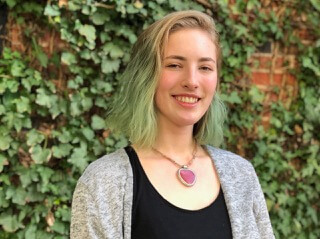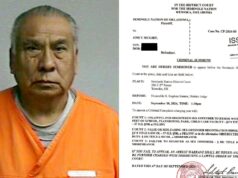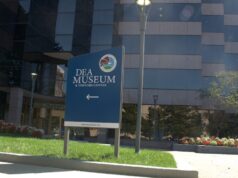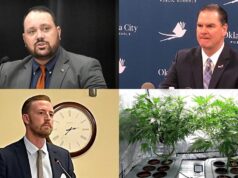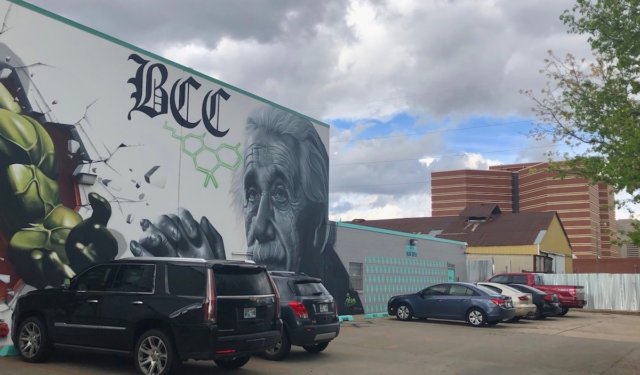

(Editor’s note: The following story appears courtesy of Gaylord News, a reporting project of the Gaylord College of Journalism and Mass Communication.)
In a yellow-lit room inside an echoing 10,620-square-foot warehouse, grower Som Kiani tends to 385 pungent cannabis plants. Instead of soil, the plants flourish in cubes made of spun volcanic rock, fed with water and nutrients by snake-like plastic tubes.
The plants would have been confiscated this time last year, and Kiani would have been arrested for growing them—but now caring for them is all in a day’s work. The cannabis dispensary where he works is located a stone’s throw away from the Oklahoma County Jail, and its name pokes fun at the irony that the industry was only recently decriminalized in Oklahoma.
“I like the word ‘paradox,’ and I like being one,” said Darin Delaney, founder of BCC Collective, one of the first hydroponic dispensaries in the state.
Plants are grown, processed and sold inside the converted candy and tobacco factory, which opened its doors this January. BCC stands for Blue Collar Criminals, a name Delaney originally gave to a streetwear brand he started.
With menu items like wedding cake and gelato, and a giant mural of Albert Einstein on the outside walls, some people have described the Blue Collar Criminals dispensary as having a “recreational vibe,” Delaney said. Customers can choose from a menu of cannabis flowers, concentrates and edibles on two flat-screen TVs behind the glass countertops — almost as if they were ordering food at an upscale burger joint.
Delaney didn’t learn his trade in Oklahoma. Originally from Ponca City, he moved to California to surf.
“I was told in ’97 that I was the only Oklahoma subscriber to Surfer Magazine that they had,” he said.
It was there Delaney discovered his enthusiasm for cannabis, as he has now been in the business for 20 years. But it wasn’t until laws changed in Oklahoma that he was able to return home to start his own dispensary.
From illicit to legal
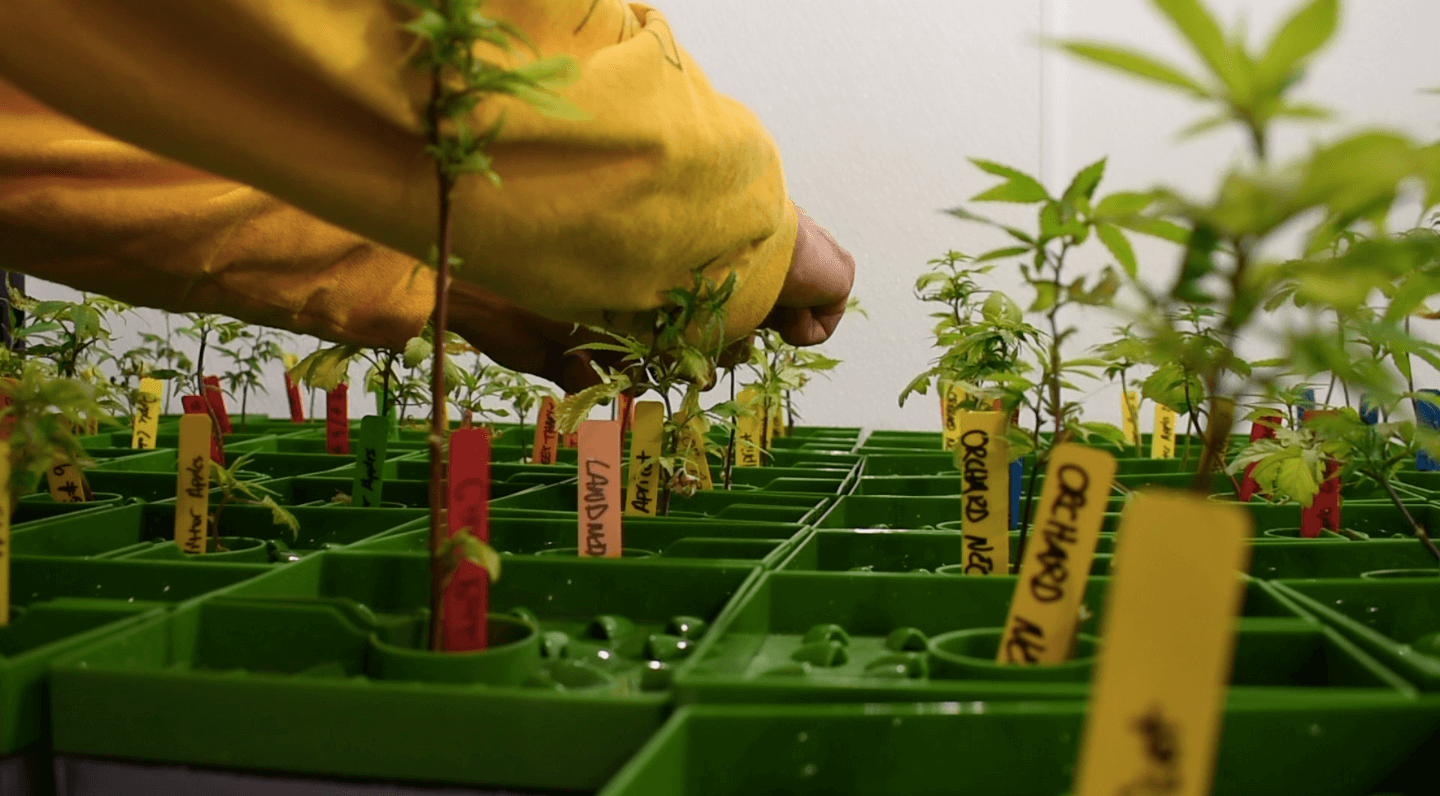
Medical marijuana was legalized after 57 percent of Oklahoma voters approved State Question 788 in June 2018. In fact, even selling products that could be linked to cannabis often drew the attention of the police.
Robert Cox, an investor in the Friendly Market in Norman, Oklahoma, said he had a “harrowing” experience when local police raided his store twice in December 2015. They not only confiscated much of the shop’s merchandise, such as glass pipes, but also emptied the cash drawers, Cox said.
“As they were raiding our store, I asked them, ‘Why are you doing this?’ and they said, ‘We don’t want marijuana legal,’” Cox said. “They even took a Rolling Stone magazine that had an article (about) marijuana.”
Through a long court process, Friendly Market was able to get the confiscated items back, and now displays them in a showcase in the middle of the store. Cox said the Norman Police Department’s attitude has changed since then, and Norman residents are less scared of harsh punishments since the law passed.
Law enforcement in Oklahoma City do not have a problem with changing cannabis laws, since officers are simply enforcers and not lawmakers, said Mark Opgrande, public information officer at the Oklahoma County Sheriff’s Office.
And while the jail near BCC Collective has locked up 4,100 people on drug charges since the beginning of the year, most charges are not for marijuana possession. Instead, the majority of drug charges involve substances like methamphetamine or heroin, Opgrande said.
Meanwhile, just down the street, BCC Collective keeps expanding and is currently adding four new grow rooms for its plants.
Delaney said he sees the national attitude toward cannabis changing. But he also pointed out that it is still illegal under federal law, making his business’s name particularly telling.
“In the cannabis industry, people say that a lot — ‘We are blue collar criminals, that’s exactly what we are,’” Delaney said. “For the people who get it … it’s kind of a reclaim of the word, and we own it rather than run from it.”








